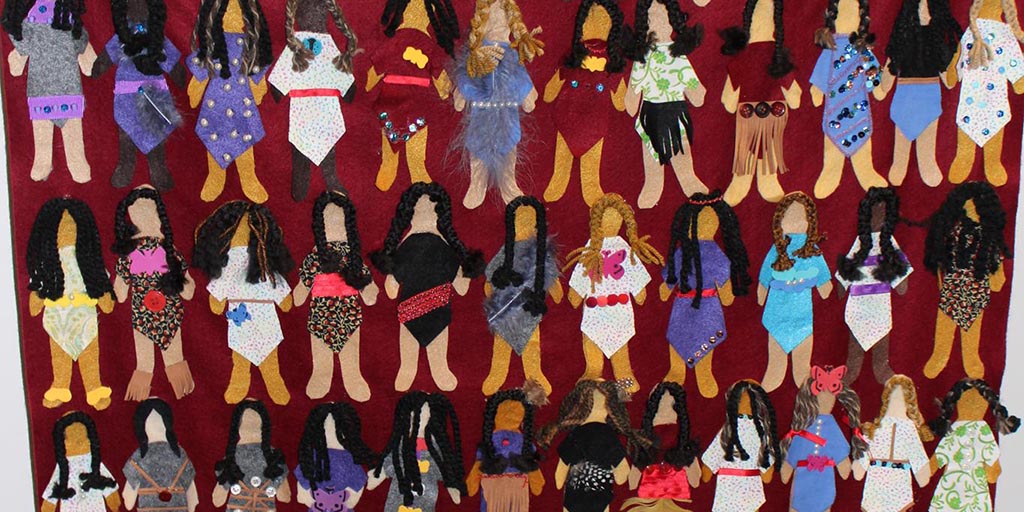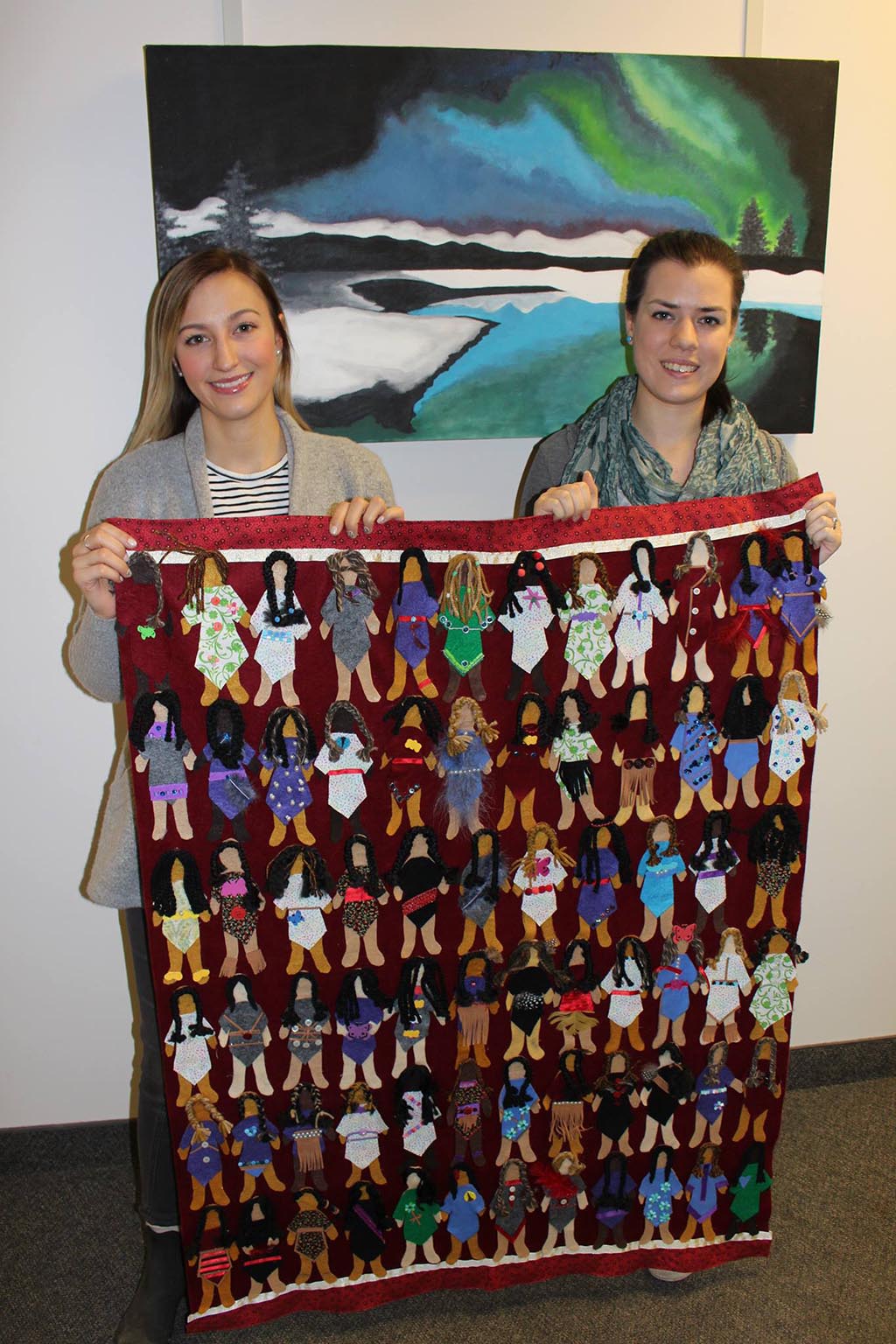Fanshawe succeeds in creating 600 faceless dolls
 CREDIT: JESSICA THOMPSON
CREDIT: JESSICA THOMPSONThe 600 faceless dolls will be on display in the Siskinds Gallery from Feb. 13 to Feb. 17.
Over the past six months, Leah Marshall, the sexual violence prevention advisor, and Chris Hannah, the student success advisor in the First Nations Centre, have been bringing the Faceless Dolls Project to each Fanshawe campus in hopes of making 600 dolls.
They succeeded and the final product is breathtaking, 600 faceless dolls each with their own unique design created by Fanshawe students.
“Through students and staff being able to sit and not only create the doll, but while creating the doll [they were able to] have conversations about how this is such an epidemic in Canada and [understand] how this is something that needs to be recognized,” Marshall said.
According to Marshall, there were many things they would try to instill in the minds of the staff and students while they were creating the dolls.
“It's bringing that awareness to the issue, but also having some critical conversations around the intersection of violence against women, racism, colonialism, all of the things that contribute to why this is such an epidemic.”
Fanshawe got permission from the Native Women's Association of Canada (NWAC) as they started this initiative to create awareness of the 1,200 missing and murdered indigenous women and girls in Canada.
“[With] the Faceless Dolls Project [we took] pre cut felt, outfits, dresses and hair and did workshops talking about the over 1,200 missing and murdered indigenous women in Canada and how these women have somehow become faceless victims of crime, yet they aren't faceless victims,” Marshall said. “They are individuals that have been lost in our communities, this isn't just a northern issue, this is something that happens locally as well.”
And bringing this initiative to the student body to help spread awareness of the issue was exactly the reason why Marshall and Hannah did it.
According to Marshall, amongst the countless informative conversations she had with the students and staff, there was one in particular that stood out to her.
“The instance of speaking to a student that actually had a family member that has been murdered and that student took the time to create this doll specifically for this person.” According to Marshall, this is a moment that will stick with her long after the project is complete.
Other students gained further information about the issue and enjoyed being able to contribute to such an important initiative.
Fanshawe Student Union (FSU) president Carlie Forsythe, also contributed to the initiative and made between four to six dolls of her own.
“I think it is a fantastic initiative� I think it is important because any student who actually participated now kind of has a tie to the project, some kind of emotion tied to the project,” said Forsythe, who also plans on going to the gallery. “That in and of itself was very smart rather than just getting them shipped in.”
Even though 600 dolls have been successfully created, the project is not done yet as Marshall and Hannah will be hanging panels containing the 600 dolls in the Siskinds Gallery in H1015.
The dolls will be hanging on the walls from Feb. 13 to Feb. 17, but there will be a special event on Wednesday, Feb. 15.
From 2 p.m. until 4 p.m. students and staff will be able to hear from Elder and Healer Liz Akiwenzie.
“She will do a traditional opening, then she will talk about empowerment because while this is an ongoing problem in Canadian society, it is hard to dwell on the negatives all the time�so she wants to talk about empowerment and how to make a positive change and how to rise up from these sorts of challenges,” Hannah said.
According to Hannah, there will also be jingle dress dancers, which is a traditional dance for healing specifically done by women in communities.
Both Marshall and Hannah agree that the event went extremely well, though they are hoping that the message fully came through to both staff and students.
“These dolls only represent half [of the 1,200], sometimes when we hear a statistic, it's hard to conceptualize what that means,” Marshall said. “They are not just a statistic, they are individual women that have had their lives taken from them.”
 CREDIT: JESSICA THOMPSON
CREDIT: JESSICA THOMPSON














